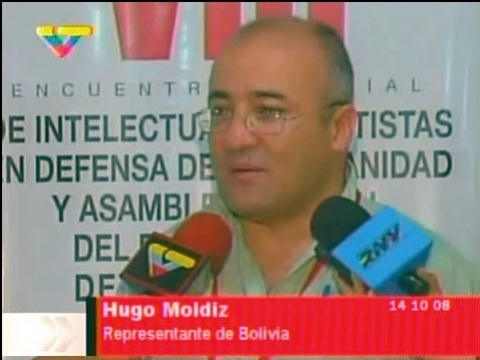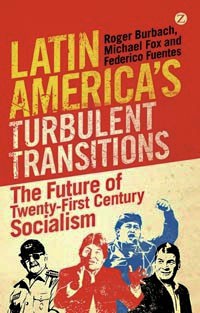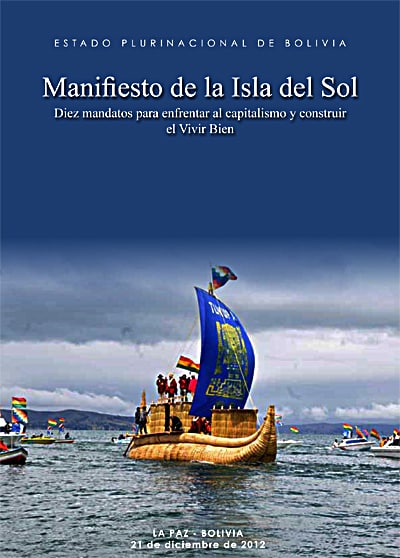Bolivia

Latin America's Turbulent Transitions: The Future of Twenty
‘There are no recipes for socialism’: interview with Hugo Moldiz, Bolivian Marxist

Hugo Moldiz interviewed by Coral Wynter and Jim McIlroy
[For more on Evo Morales and Bolivia, click HERE.]
January 15, 2013 -- Climate and Capitalism/Life on the Left, posted at Links International Journal of Socialist Renewal with permission -- On December 21, 2012, at a solstice celebration in Lake Titicaca, high in the Andes, Bolivia's president Evo Morales introduced the Manifesto of Isla del Sol. His talk, translated below, includes the full text of the manifesto.
Pablo Solon: Strike four for climate change negotiations -- rethinking our strategies

Super Typhoon Bopha taken on December 2 from the International Space Station, as the storm bore down on the Philippines with winds of 135 miles per hour. Photo by NASA.
By Pablo Solon
December 18, 2012 -- Hoy es Todavia -- In baseball, when you have three strikes, you are out. In the climate change negotiations we already have had four strikes. The climate talks in Copenhagen, Cancun, Durban and now Doha. Four attempts and each of the results were bigger failures than the last. The emission reductions should have been at least 40 to 50% until 2020 based on 1990 levels. Four COPs later, the current numbers are down to a measly 13 to 18%. We are now well on our way to a global temperature increase of 4º to 8ºC.
“The perfect is the enemy of the good” is what some UN negotiators say. To which we can reply: “When our house is burning down, the worst thing you can do is lie to us.”
It’s time to rethink what is happening and try to find new strategies to avoid a global catastrophe.
No lack of evidence

Introduction and translation by Richard Fidler
Doha climate talks: Bolivia declares, 'The climate is not for sale!'

The following address was presented on December 5 by Jose Antonio Zamora Guitierrez (pictured), minister of environment and water for the Plurinational State of Bolivia, to the UN Conference on Climate Change (COP18) in Doha, Qatar.
* * *
December 5, 2012 -- Links International Journal of Socialist Renewal -- Mr. President of the COP, distinguished heads of state of countries of the world, ministers, officials, delegates and representatives of social organisations, Indigenous peoples and communities and farmers of the world, receive a greeting from the Plurinational State of Bolivia and our president, Evo Morales Ayma.
The planet and humanity are in serious danger of extinction. The forests are in danger, biodiversity is in danger, the rivers and the oceans are in danger, the Earth is in danger. This beautiful human community inhabiting our Mother Earth is in danger due to the climate crisis.
Is Venezuela a 'one off'? A response to Richard Seymour's must-read analysis

Marta Harnecker: Conquering a new popular hegemony

"In recent years, and in increasingly more countries, growing multitudes have rebe
Bolivia: Who's the real 'outlaw'? Behind Bolivia’s nationalisation of a Canadian mine

By Paul Kellogg
September 5, 2012 -- PolEcon.net, posted at Links International Journal of Socialist Renewal with permission -- For Canada's Financial Post, the actions of the Bolivian government in nationalising a Canadian mine this northern summer confirmed the country’s status as an “outlaw nation” (Grace 2012). But for less-biased observers, the reality was a little different.
Responding to pressure from local Indigenous communities the Bolivian government confirmed on August 2 that it would expropriate the operations of a Canadian-owned mining project. This represents, in the short term, the success of local social movements in putting an end to violence created by the tactics of the corporation, and in the long term, one small step towards ending 500 years of foreign powers stripping the country of its natural resources.


